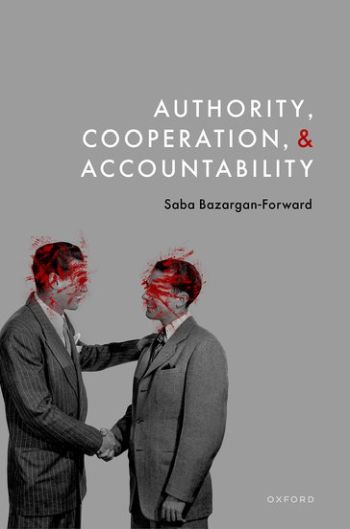
How should we decide a single employee's accountability in a corporation that commits egregious wrongs? What about a single solider fighting in an unjust war? Or a single participant in a lynching? We need a way to make sense of individual moral accountability in cases where multiple individuals are cooperating in a way that results in a wrongful harm.
Authority, Cooperation, and Accountability develops a novel strategy for addressing this issue. Saba Bazargan-Forward makes the case for thinking that distinct aspects of human agency, normally wrapped up in a single person, can be 'distributed' practically across different people. He argues that we 'distribute' agency routinely, by forming promises, by making requests, by issuing demands, and by undertaking shared action. The resulting division of agential labour makes possible a distinctive way in which one person can be accountable for the actions of another. Bazargan-Forward highlights that what matters morally is not just our causal contributions to wrongful cooperative activity. In addition, the purposes we confer upon one another can inculpate us as well. The result is an account that can help us make sense of individual moral accountability in a bureaucratized world.